Mastering your CNA certification exam requires a thorough understanding of essential nursing assistant skills and patient-centered care. Use this focused CNA Study Guide to improve your test prep and clinical performance with targeted strategies in each key area.
1. Basic Nursing Skills: CNA Study Guide
Start with a strong foundation in basic nursing tasks such as measuring vital signs, assisting with ambulation, maintaining infection control, and reporting observations. Study guides should cover skills like blood pressure measurement, height and weight, and hand hygiene protocols. These core areas are heavily tested on both the written and clinical CNA exam.
2. Personal Care Skills: The Heart of Nursing
Ace this section by practicing bathing, dressing, oral care, and nail care. Focus on proper techniques for perineal care, catheter care, and assisting with toileting. Understanding how to protect resident dignity during these tasks is vital for passing your skills test.
3. Mental Health & Social Service Needs
Study the principles of mental wellness, emotional support, and resident-centered care. Review scenarios involving depression, anxiety, and social withdrawal in elderly patients, and know how to provide compassionate responses that promote mental health.
4. Restorative Skills: Promoting Independence
Know how to encourage residents to do as much as they can on their own. Learn range-of-motion exercises, ambulation assistance, use of assistive devices, and how to document progress in mobility. Independence is a cornerstone of restorative CNA care.
5. Resident’s Rights: Advocacy & Respect
Understand the legal rights of residents in nursing homes and assisted living facilities. Topics include privacy, informed consent, refusal of care, and freedom from abuse. This is a critical area that affects both the written CNA exam and your real-world job performance.
6. Communication: The Bridge to Quality Care
Review how to communicate effectively with residents, family members, and other healthcare professionals. Practice using active listening, nonverbal cues, and clear documentation. The CNA exam often includes questions on reporting changes in condition and proper charting.
7. Safety & Emergency Procedures
Study fall prevention, fire safety, choking protocols, and how to respond to cardiac arrest. Review emergency procedures like calling for help, using the Heimlich maneuver, and handling hazardous materials. Safety is a key competency in CNA certification.
8. Handling Dementia & Resident Confusion
Prepare for test questions on Alzheimer’s disease, dementia-related behavior, and delirium management. Know how to respond to wandering, sundowning, and hallucinations while maintaining a calm, respectful demeanor.
9. Urinary Catheter Care
This skill is often demonstrated during the CNA clinical exam. Learn how to properly clean the catheter tubing, monitor for infection, and ensure that urine drains correctly into the collection bag without tension or backflow. Practice this with step-by-step accuracy.
10. Assisting Residents with Eating & Preventing Choking
Understand how to help residents with dysphagia, use of thickened liquids, and upright positioning during meals. Review procedures for feeding residents safely, documenting intake, and watching for signs of aspiration.
11. Managing Resident Aggression & Combative Behavior
Learn strategies for safely handling agitation, verbal outbursts, and physical aggression. Focus on de-escalation techniques, maintaining personal safety, and documenting incidents. The CNA exam may include behavioral scenarios or roleplay-type questions.
12. Caring for Residents with Diabetes
Review how to assist residents with blood sugar monitoring, foot care, meal planning, and recognizing signs of hypoglycemia or hyperglycemia. This is increasingly relevant due to the growing number of diabetic residents in long-term care.
13. Supporting Residents Who Are Grieving
Prepare to offer emotional support to residents dealing with loss of a spouse, home, or independence. Learn to recognize signs of grief, provide comfort, and know when to report changes in mental status to the nurse.
In Summary…
To pass your CNA certification exam with confidence, study each category thoroughly, practice your clinical skills regularly, and stay committed to delivering compassionate care. Your journey toward becoming a Certified Nursing Assistant starts with preparation—and ends with success.

